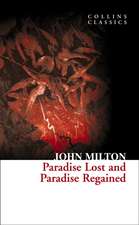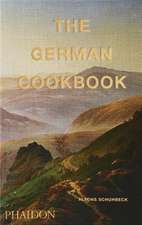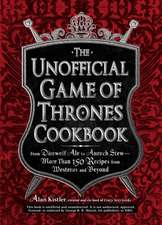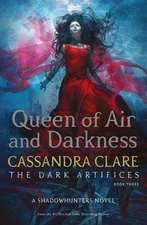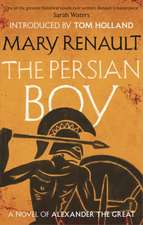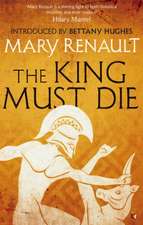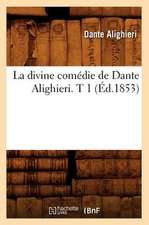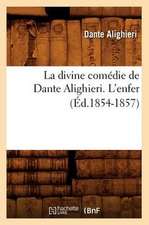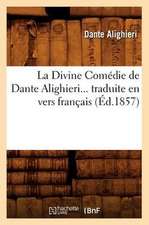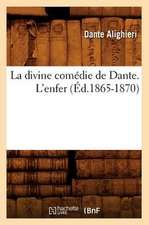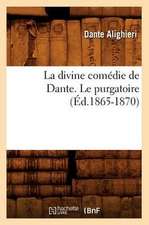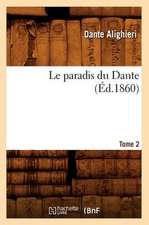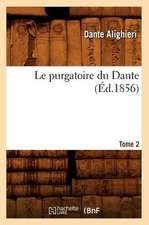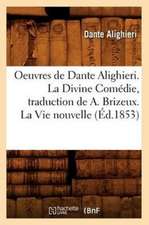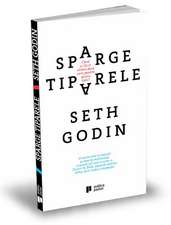Inferno
Autor Dante Alighieri Ilustrat de Henrik Drescher Traducere de Mary Jo Bangen Limba Engleză Paperback – 2 sep 2013
Vezi toate premiile Carte premiată
An innovative and fascinating new version of Dante Alighieri's "Inferno" as it has never been rendered
Stopped mid-motion in the middle
Of what we call a life, I looked up and saw no sky-
Only a dense cage of leaf, tree, and twig. I was lost.
--from Canto I
Award-winning poet Mary Jo Bang has translated the "Inferno" into English at a moment when popular culture is so prevalent that it has even taken Dante, author of the fourteenth century epic poem, "The Divine Comedy," and turned him into an action-adventure video game hero. Dante, a master of innovation, wrote his poem in the vernacular, rather than in literary Latin. Bang has similarly created an idiomatically rich contemporary version that is accessible, musical, and audacious. She's matched Dante's own liberal use of allusion and literary borrowing by incorporating literary and cultural references familiar to contemporary readers: Shakespeare and Dickinson, Freud and South Park, Kierkegaard and Stephen Colbert. The Inferno--the allegorical story of a spiritual quest that begins in a dark forest, traverses Hell's nine circles, and ends at the hopeful edge of purgatory--was also an indictment of religious hypocrisy and political corruption. In its time, the poem was stunningly new. Bang's version is true to the original: lyrical, politically astute, occasionally self-mocking, and deeply moving. With haunting illustrations by Henrik Drescher, this is the most readable Inferno available in English, a truly remarkable achievement.
| Toate formatele și edițiile | Preț | Express |
|---|---|---|
| Paperback (21) | 19.88 lei 3-5 săpt. | +5.83 lei 6-10 zile |
| HarperCollins Publishers – 4 mar 2025 | 19.88 lei 3-5 săpt. | +5.83 lei 6-10 zile |
| Penguin Random House Group – 8 oct 2009 | 37.18 lei 23-34 zile | +27.68 lei 6-10 zile |
| Bantam Books – 31 dec 1981 | 42.25 lei 3-5 săpt. | |
| CREATESPACE – | 43.74 lei 3-5 săpt. | |
| CREATESPACE – | 47.45 lei 3-5 săpt. | |
| CREATESPACE – | 48.45 lei 3-5 săpt. | |
| Modern Library – 30 sep 2005 | 50.32 lei 3-5 săpt. | |
| Arcturus Publishing – 15 iul 2018 | 50.53 lei 3-5 săpt. | +6.26 lei 6-10 zile |
| UNION SQUARE & CO – 22 iun 2023 | 54.25 lei 3-5 săpt. | +16.14 lei 6-10 zile |
| Alma Books COMMIS – 15 ian 2014 | 58.75 lei 3-5 săpt. | +14.00 lei 6-10 zile |
| CREATESPACE – | 68.92 lei 3-5 săpt. | |
| Mint Editions – 6 aug 2024 | 74.11 lei 3-5 săpt. | +7.30 lei 6-10 zile |
| KUPERARD (BRAVO LTD) – 2 mai 2004 | 75.86 lei 3-4 săpt. | |
| Aegypan Press – 31 mar 2008 | 107.11 lei 3-5 săpt. | |
| ODDNESS – 31 ian 2022 | 111.74 lei 3-5 săpt. | |
| Anchor Books – 31 dec 2001 | 114.85 lei 3-5 săpt. | |
| Hackett Publishing Company – 28 feb 2009 | 119.13 lei 3-5 săpt. | +29.99 lei 6-10 zile |
| Vintage Publishing – 30 sep 1999 | 119.66 lei 3-5 săpt. | |
| Graywolf Press – 2 sep 2013 | 124.78 lei 3-5 săpt. | |
| Hackett Publishing Company – 15 oct 2006 | 130.22 lei 3-5 săpt. | |
| Lulu.Com – 12 iul 2017 | 155.15 lei 6-8 săpt. | |
| Hardback (6) | 47.95 lei 3-5 săpt. | +24.37 lei 6-10 zile |
| CHARTWELL BOOKS – 14 dec 2021 | 47.95 lei 3-5 săpt. | +24.37 lei 6-10 zile |
| Quarto Publishing Group USA, Inc. – 28 noi 2024 | 81.93 lei 3-5 săpt. | +32.23 lei 6-10 zile |
| Mint Editions – 6 aug 2024 | 101.73 lei 3-5 săpt. | +12.31 lei 6-10 zile |
| Harvard University Press – 4 feb 1918 | 486.31 lei 3-5 săpt. | |
| BEEHIVE BOOKS – 25 mar 2025 | 541.97 lei 3-5 săpt. | |
| Aegypan Press – 30 apr 2008 | 199.08 lei 6-8 săpt. |
Preț: 124.78 lei
Nou
23.88€ • 25.93$ • 20.06£
Carte disponibilă
Livrare economică 02-16 aprilie
Specificații
ISBN-10: 1555976549
Pagini: 340
Dimensiuni: 154 x 227 x 22 mm
Greutate: 0.66 kg
Editura: Graywolf Press
Recenzii de la cititorii Books Express
Ioana Andreia Sandru a dat nota:
It was rather hard to understand it and so I read it twice. The second time reading it was more enjoyable because I understood the poem better, and that helped me appreciate the power of imagination and creativity. Inferno is undoubtedly one of the masterpieces in epic poetry.
Ioana Andreia Sandru a dat nota:
It was rather hard to understand it and so I read it twice. The second time reading it was more enjoyable because I understood the poem better, and that helped me appreciate the power of imagination and creativity. Inferno is undoubtedly one of the masterpieces in epic poetry.
Notă biografică
Descriere
"Abandon all hope, ye who enter here"readthe now-famous words above the gate through which Dante, the protagonist of Inferno, crosses the threshold. But that forbidding inscription applies only to those without faith; and though Dante's journey through the nine circles of Hellbegins withterror and confusion.
Extras
Nel mezzo del cammin di nostra vita
mi ritrovai per una selva oscura,
che la diritta via era smarrita.
Ahi quanto a dir qual era e cosa dura4
esta selva selvaggia e aspra e forte
che nel pensier rinova la paura!
Tant' e amara che poco e piu morte;7
ma per trattar del ben ch'i' vi trovai,
diro de l'altre cose ch'i' v'ho scorte.
Io non so ben ridir com' i' v'intrai,10
tant' era pien di sonno a quel punto
che la verace via abbandonai.
Ma poi ch'i' fui al pie d'un colle giunto,13
la dove terminava quella valle
che m'avea di paura il cor compunto,
guardai in alto e vidi le sue spalle16
vestite gia de' raggi del pianeta
che mena dritto altrui per ogne calle.
Allor fu la paura un poco queta,19
che nel lago del cor m'era durata
la notte ch'i' passai con tanta pieta.
E come quei che con lena affannata,22
uscito fuor del pelago a la riva,
si volge a l'acqua perigliosa e guata,
cosi l'animo mio, ch'ancor fuggiva,25
si volse a retro a rimirar lo passo
che non lascio gia mai persona viva.
Poi ch'ei posato un poco il corpo lasso,28
ripresi via per la piaggia diserta,
si che 'l pie fermo sempre era 'l piu basso.
The voyager-narrator astray by night in a dark forest. Morning and the sunlit hill. Three beasts that impede his ascent. The encounter with Virgil, who offers his guidance and an alternative path through two of the three realms the voyager must visit.
When I had journeyed half of our life's way,
I found myself within a shadowed forest,
for I had lost the path that does not stray.
Ah, it is hard to speak of what it was,4
that savage forest, dense and difficult,
which even in recall renews my fear:
so bitter--death is hardly more severe!7
But to retell the good discovered there,
I'll also tell the other things I saw.
I cannot clearly say how I had entered10
the wood; I was so full of sleep just at
the point where I abandoned the true path.
But when I'd reached the bottom of a hill--13
it rose along the boundary of the valley
that had harassed my heart with so much fear--
I looked on high and saw its shoulders clothed16
already by the rays of that same planet
which serves to lead men straight along all roads.
At this my fear was somewhat quieted;19
for through the night of sorrow I had spent,
the lake within my heart felt terror present.
And just as he who, with exhausted breath,22
having escaped from sea to shore, turns back
to watch the dangerous waters he has quit,
so did my spirit, still a fugitive,25
turn back to look intently at the pass
that never has let any man survive.
I let my tired body rest awhile.28
Moving again, I tried the lonely slope--
my firm foot always was the one below.
Ed ecco, quasi al cominciar de l'erta,31
una lonza leggiera e presta molto,
che di pel macolato era coverta;
e non mi si partia dinanzi al volto,34
anzi 'mpediva tanto il mio cammino,
ch'i' fui per ritornar piu volte volto.
Temp' era dal principio del mattino,37
e 'l sol montava 'n su con quelle stelle
ch'eran con lui quando l'amor divino
mosse di prima quelle cose belle;40
si ch'a bene sperar m'era cagione
di quella fiera a la gaetta pelle
l'ora del tempo e la dolce stagione;43
ma non si che paura non mi desse
la vista che m'apparve d'un leone.
Questi parea che contra me venisse46
con la test' alta e con rabbiosa fame,
si che parea che l'aere ne tremesse.
Ed una lupa, che di tutte brame49
sembiava carca ne la sua magrezza,
e molte genti fe gia viver grame,
questa mi porse tanto di gravezza52
con la paura ch'uscia di sua vista,
ch'io perdei la speranza de l'altezza.
E qual e quei che volontieri acquista,55
e giugne 'l tempo che perder lo face,
che 'n tutti suoi pensier piange e s'attrista;
tal mi fece la bestia sanza pace,58
che, venendomi 'ncontro, a poco a poco
mi ripigneva la dove 'l sol tace.
Mentre ch'i' rovinava in basso loco,61
dinanzi a li occhi mi si fu offerto
chi per lungo silenzio parea fioco.
Quando vidi costui nel gran diserto,64
"Miserere di me," gridai a lui,
"qual che tu sii, od ombra od omo certo!"
Rispuosemi: "Non omo, omo gia fui,67
e li parenti miei furon lombardi,
mantoani per patria ambedui.
And almost where the hillside starts to rise--31
look there!--a leopard, very quick and lithe,
a leopard covered with a spotted hide.
He did not disappear from sight, but stayed;34
indeed, he so impeded my ascent
that I had often to turn back again.
The time was the beginning of the morning;37
the sun was rising now in fellowship
with the same stars that had escorted it
when Divine Love first moved those things of beauty;40
so that the hour and the gentle season
gave me good cause for hopefulness on seeing
that beast before me with his speckled skin;43
but hope was hardly able to prevent
the fear I felt when I beheld a lion.
His head held high and ravenous with hunger--46
even the air around him seemed to shudder--
this lion seemed to make his way against me.
And then a she-wolf showed herself; she seemed49
to carry every craving in her leanness;
she had already brought despair to many.
The very sight of her so weighted me52
with fearfulness that I abandoned hope
of ever climbing up that mountain slope.
Even as he who glories while he gains55
will, when the time has come to tally loss,
lament with every thought and turn despondent,
so was I when I faced that restless beast,58
which, even as she stalked me, step by step
had thrust me back to where the sun is speechless.
While I retreated down to lower ground,61
before my eyes there suddenly appeared
one who seemed faint because of the long silence.
When I saw him in that vast wilderness,64
"Have pity on me," were the words I cried,
"whatever you may be--a shade, a man."
He answered me: "Not man; I once was man.67
Both of my parents came from Lombardy,
and both claimed Mantua as native city.
Nacqui sub Iulio, ancor che fosse tardi,70
e vissi a Roma sotto 'l buono Augusto
nel tempo de li dei falsi e bugiardi.
Poeta fui, e cantai di quel giusto73
figliuol d'Anchise che venne di Troia,
poi che 'l superbo Ilion fu combusto.
Ma tu perche ritorni a tanta noia?76
perche non sali il dilettoso monte
ch'e principio e cagion di tutta gioia?"
"Or se' tu quel Virgilio e quella fonte79
che spandi di parlar si largo fiume?"
rispuos' io lui con vergognosa fronte.
"O de li altri poeti onore e lume,82
vagliami 'l lungo studio e 'l grande amore
che m'ha fatto cercar lo tuo volume.
Tu se' lo mio maestro e 'l mio autore,85
tu se' solo colui da cu' io tolsi
lo bello stilo che m'ha fatto onore.
Vedi la bestia per cu' io mi volsi;88
aiutami da lei, famoso saggio,
ch'ella mi fa tremar le vene e i polsi."
"A te convien tenere altro viaggio,"91
rispuose, poi che lagrimar mi vide,
"se vuo' campar d'esto loco selvaggio;
che questa bestia, per la qual tu gride,94
non lascia altrui passar per la sua via,
ma tanto lo 'mpedisce che l'uccide;
e ha natura si malvagia e ria,97
che mai non empie la bramosa voglia,
e dopo 'l pasto ha piu fame che pria.
Molti son li animali a cui s'ammoglia,100
e piu saranno ancora, infin che 'l veltro
verra, che la fara morir con doglia.
Questi non cibera terra ne peltro,103
ma sapienza, amore e virtute,
e sua nazion sara tra feltro e feltro.
Di quella umile Italia fia salute106
per cui mori la vergine Cammilla,
Eurialo e Turno e Niso di ferute.
And I was born, though late, sub Julio,70
and lived in Rome under the good Augustus--
the season of the false and lying gods.
I was a poet, and I sang the righteous73
son of Anchises who had come from Troy
when flames destroyed the pride of Ilium.
But why do you return to wretchedness?76
Why not climb up the mountain of delight,
the origin and cause of every joy?"
"And are you then that Virgil, you the fountain79
that freely pours so rich a stream of speech?"
I answered him with shame upon my brow.
"O light and honor of all other poets,82
may my long study and the intense love
that made me search your volume serve me now.
You are my master and my author, you--85
the only one from whom my writing drew
the noble style for which I have been honored.
You see the beast that made me turn aside;88
help me, o famous sage, to stand against her,
for she has made my blood and pulses shudder."
"It is another path that you must take,"91
he answered when he saw my tearfulness,
"if you would leave this savage wilderness;
the beast that is the cause of your outcry94
allows no man to pass along her track,
but blocks him even to the point of death;
her nature is so squalid, so malicious97
that she can never sate her greedy will;
when she has fed, she's hungrier than ever.
She mates with many living souls and shall100
yet mate with many more, until the Greyhound
arrives, inflicting painful death on her.
That Hound will never feed on land or pewter,103
but find his fare in wisdom, love, and virtue;
his place of birth shall be between two felts.
He will restore low-lying Italy106
for which the maid Camilla died of wounds,
and Nisus, Turnus, and Euryalus.
Questi la caccera per ogne villa,109
fin che l'avra rimessa ne lo 'nferno,
la onde 'nvidia prima dipartilla.
Ond' io per lo tuo me' penso e discerno112
che tu mi segui, e io saro tua guida,
e trarrotti di qui per loco etterno,
ove udirai le disperate strida,115
vedrai li antichi spiriti dolenti,
ch'a la seconda morte ciascun grida;
e vederai color che son contenti118
nel foco, perche speran di venire
quando che sia a le beate genti.
A le quai poi se tu vorrai salire,121
anima fia a cio piu di me degna:
con lei ti lascero nel mio partire;
che quello imperador che la su regna,124
perch' i' fu' ribellante a la sua legge,
non vuol che 'n sua citta per me si vegna.
In tutte parti impera e quivi regge;127
quivi e la sua citta e l'alto seggio:
oh felice colui cu' ivi elegge!"
E io a lui: "Poeta, io ti richeggio130
per quello Dio che tu non conoscesti,
a cio ch'io fugga questo male e peggio,
che tu mi meni la dov' or dicesti,133
si ch'io veggia la porta di san Pietro
e color cui tu fai cotanto mesti."
Allor si mosse, e io li tenni dietro.136
And he will hunt that beast through every city109
until he thrusts her back again to Hell,
from which she was first sent above by envy.
Therefore, I think and judge it best for you112
to follow me, and I shall guide you, taking
you from this place through an eternal place,
where you shall hear the howls of desperation115
and see the ancient spirits in their pain,
as each of them laments his second death;
and you shall see those souls who are content118
within the fire, for they hope to reach--
whenever that may be--the blessed people.
If you would then ascend as high as these,121
a soul more worthy than I am will guide you;
I'll leave you in her care when I depart,
because that Emperor who reigns above,124
since I have been rebellious to His law,
will not allow me entry to His city.
He governs everywhere, but rules from there;127
there is His city, His high capital:
o happy those He chooses to be there!"
And I replied: "O poet--by that God130
whom you had never come to know--I beg you,
that I may flee this evil and worse evils,
to lead me to the place of which you spoke,133
that I may see the gateway of Saint Peter
and those whom you describe as sorrowful."
Then he set out, and I moved on behind him.136
CANTO II
Lo giorno se n'andava, e l'aere bruno
toglieva li animai che sono in terra
da le fatiche loro; e io sol uno
m'apparecchiava a sostener la guerra4
si del cammino e si de la pietate,
che ritrarra la mente che non erra.
O Muse, o alto ingegno, or m'aiutate;7
o mente che scrivesti cio ch'io vidi,
qui si parra la tua nobilitate.
Io cominciai: "Poeta che mi guidi,10
guarda la mia virtu s'ell' e possente,
prima ch'a l'alto passo tu mi fidi.
Tu dici che di Silvio il parente,13
corruttibile ancora, ad immortale
secolo ando, e fu sensibilmente.
Pero, se l'avversario d'ogne male16
cortese i fu, pensando l'alto effetto
ch'uscir dovea di lui, e 'l chi e 'l quale,
non pare indegno ad omo d'intelletto;19
ch'e' fu de l'alma Roma e di suo impero
ne l'empireo ciel per padre eletto:
la quale e 'l quale, a voler dir lo vero,22
fu stabilita per lo loco santo
u' siede il successor del maggior Piero.
Per quest' andata onde li dai tu vanto,25
intese cose che furon cagione
di sua vittoria e del papale ammanto.
Andovvi poi lo Vas d'elezione,28
per recarne conforto a quella fede
ch'e principio a la via di salvazione.
The following evening, Invocation to the Muses. The narrator's questioning of his worthiness to visit the deathless world. Virgil's comforting explanation that he has been sent to help Dante by three Ladies of Heaven. The voyager heartened. Their setting out.
The day was now departing; the dark air
released the living beings of the earth
from work and weariness; and I myself
alone prepared to undergo the battle4
both of the journeying and of the pity,
which memory, mistaking not, shall show.
O Muses, o high genius, help me now;7
o memory that set down what I saw,
here shall your excellence reveal itself!
I started: "Poet, you who are my guide,10
see if the force in me is strong enough
before you let me face that rugged pass.
You say that he who fathered Sylvius,13
while he was still corruptible, had journeyed
into the deathless world with his live body.
For, if the Enemy of every evil16
was courteous to him, considering
all he would cause and who and what he was,
that does not seem incomprehensible,19
since in the empyrean heaven he was chosen
to father honored Rome and her empire;
and if the truth be told, Rome and her realm22
were destined to become the sacred place,
Recenzii
I deeply admired Lombardo's translations of Iliad and Odyssey , as did my students--they were universally complimentary, loving the way the poetry flowed, and many of them learned the habit of reading the text aloud, much to the astonishment of their classmates from other sections of the courses. But their encounter with his Inferno was of a different order, as was mine. Lombardo's Inferno is so knowledgeable of the translation tradition (which it uses to marvelous effect), so poetically well-crafted, so compelling to read, so well-documented without overwhelming the reader, that I simply did not want to put it down. My students had much the same reaction. Although in the first session they were responsible for only the first third of the book, I quickly noticed that most of them had already read it through. They found it compelling to read and were captivated by a journey to which many of them had the week before said they did not look forward. --Ted Humphrey, Barrett Professor in the Barrett Honors College, Arizona State University
"This newest verse translation offered by Stanley Lombardo artfully carries into English the radical vernacularity, both linguistic and cultural, of Dante's Inferno. Readers and teachers who want a text that will resonate with contemporary and colloquial American English would do well to choose this translation. Lombardo's translation revels in the street music of Dante's vernacular poetry and occasional vulgar style in the Inferno. At times the interaction between Dante's stock devils, the Malebranche, sounds like the dialogue in a Scorsese film. Lombardo performs other poetic feats so that Dante's poetry might stand out in English with the same vitality with which Dante infused his vernacular poem. Lombardo finishes every canto with a brief interlocked rhymed passage to give the reader a taste of Dante's terza rima. He also shifts into rhyme for Dante's diatribes. As Lombardo aptly points out in his preface, style and meaning must cohere if the art of the poet is to resurface in a translation, and the forcefulness of his translation allows Dante's harsh poetry to carry through. The volume contains various helpful tools for the reader to understand the Inferno, both as an expression of the medieval intellect and as a cornerstone of the European literary tradition, and provides ample headnotes, prepared by veteran Dante scholar Anthony Oldcorn, to each canto. Neither a simple summary nor a detailed gloss, the notes do provide narrative signposts while giving a feel for the myriad ethical, philosophical, and poetical themes that Dante confronts. The eminent Dante scholar Steven Botterill provides a masterly introduction to the Inferno that grounds the poem in Dante's Italy while refraining from dwelling on unnecessary detail. Botterill organizes the introduction into themes rather than offering a vita auctoris. The novice reader of Dante will learn the important facts of Dante's life without having ever read the word Guelph or Ghibelline. Instead, Botterill emphasizes Dante as a vernacular poet and the radical invention of his poem. Similarly, the endnotes, by Oldcorn, opt for brevity and elegance over the exhaustive apparatus that accompanies many editions of the Commedia Oldcorn covers Dante's fundamental literary genealogies while paying attention to his place in the Western tradition. This translation aims to bring Dante to a new audience of readers who are unfamiliar with Dante and the Italian tradition in general." --Jason M. Houston, Speculum
Textul de pe ultima copertă
Premii
- ALA Notable Books Winner, 2013


